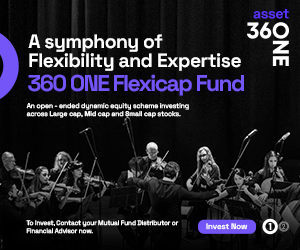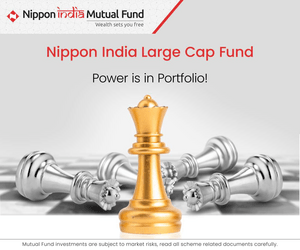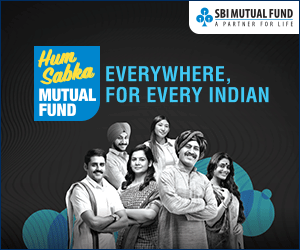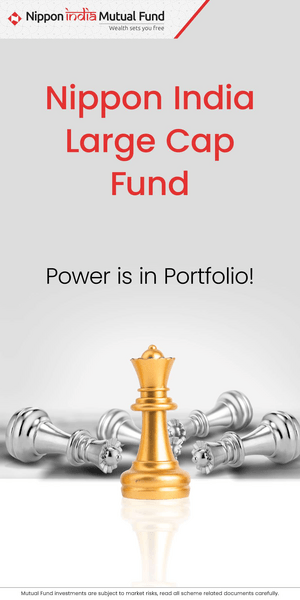Living longer is the biggest risk

Biggest Risk in Life
When it comes to investment related risks or financial risks, we are aware of the risks like credit risk, currency risk, market risk, liquidity risk etc. But the bigger risk in today’s life which we all are facing is almost unknown to all of us. And that risk is the risk of living longer. Yes, you read it correctly. Let me again mention in BOLD letters - WE ALL ARE FACING A VERY BIG RISK OF LIVING A LONGER LIFE!
Average life expectancy of Indian is increased from 35 years to 67.8 years in 2014 since independence (Source: World Bank, World Development Indicators). And this number is increasing every year. Average Indian is expected to live longer and the life span is still expected to increase due to advancement in clinical research and medical field. The first thought which could occur in anyone’s mind after reading this number is, GREAT, IT'S A REASON TO CHEER! But the fact, which at first glance looks like a reason to cheer, is in fact a reason for a BIG WORRY. A longer life, if not coupled with financial independence is of no meaning.
Classic example is Japan. In Japan today the life expectancy is little more than 82 years. Look at the growth rate of economy. It’s almost NIL. As the life expectancy increases the number of more financially dependent people increases. The same could be the case with India in after 2 decades.
Three Phases of our life
In our life span we pass through 3 phases.
- Learning Phase
- Earning Phase
- Reaping Phase
In First phase i.e. learning phase which lasts for on an average 2 to 2.5 decades, one spends most of the time in getting education and acquiring the skills which he can use in future to earn money. In Earning Phase which lasts for approx 3 decades where one spends most of the time in earning money using the skill obtained during learning phase. And while earning one also tries and saves for the third phase i.e reaping phase which is also known as retirement. In this phase one is financially dependent on either one's own savings which is accumulated during second phase or their children.
Assume the situation in which you are solely dependent on your retirement kitty and your retirement account gets exhausted in 7 to 8 years after you attain the retirement and you still have a decade more to live. You might think that this situation could never occur to you, as you do lots of savings. But that's what our fathers and forefathers have done in past and still many of the aged people are dependent on their children for financial help even after working for 3 full decades and doing lots of savings.
Dependency is curse
Go and visit the nearest old age homes, you will realize that more and more number of people are getting added to these kind of old age homes and living their life on the support and pity of others. It’s not because, they didn't saved during their earning life, they surely would have. But it's because of lack of knowledge towards channelizing the savings into the right investments.
These people when they were young they never have thought that monthly grocery bill which was Rs. 1000 to 2000 per month at that time will rose to Rs. 20,000 to Rs. 25,000 per month when they retire. They never visualized that the medical expenses will increase many folds during the old age. They could never imagined that the cooking gas cylinder which was costing less than Rs. 100 at that time would cost them more than Rs. 650 at the time of retirement.
They kept on saving but never planned or never calculated the exact amount of money they would require for their retirement. This might happen to you as well. Have you ever planned your investment thinking that the petrol which is costing Rs. 75 today would be Rs. 500 per litre and the monthly expense to survive could increased to 1.5 Lacs rupees per month during your retirement.
Safety is illusive
Our forefathers have never thought that their capital being invested only into the FDs and Traditional Life insurance plans are not keeping their capital safe by giving 8% to 9% return but they are eating up the value of money every year. We need to look beyond the safety in nominal terms to the safety and growth in real terms.
The traditional investment which doubles our money in 8 to 9 years alone is not suitable in the current environment where our expenses get doubled in every 4 to 5 years. We must look at adding the equity investment into our retirement portfolio which has historically beaten the inflation.
Rs. 100 invested in some nationalised bank FD in 1979 would have grown to somewhere between Rs. 1500/- to Rs 1600/- which is hardly capable of fighting the inflation to save the purchasing power of your money. On the other hand, had the same amount of Rs. 100/- been invested into BSE Sensex, then today its worth would have been Rs. 26,000/- only due to price gain and ignoring dividends. If dividends are added this figure would even scale higher.
Case Study
I just came across one of the relatives of mine who was able to accumulate around Rs. 32 Lacs of money in his retirement kitty. And he is very happy saying that his house hold expense which is currently Rs. 25,000 approx per month is easy to earn just from the interest of the retirement kitty he has build up. But, he has never thought about the impact of devil called "Inflation"? Even if I assume conservatively 8% per annum inflation and risk free rate of return 9% post tax on the retirement funds, his retirement kitty would have zero balance before the completion of 7.5 years of retirement life.
Now what? If I assume the total 20 years of retirement life before he dies he requires roughly Rs. 55 Lacs for retirement kitty.
Goals come first
This happens with almost majority of the population due to lack of proper planning and knowledge. We always go and search in market for good investment product without knowing how much we would be wanting in future and weather the product in which we are investing will deliver the required rate of return to achieve our future goals. It’s like playing football without having goal posts.
If someone tells you that XYZ Pharma Company has come out with a very good medicine for heart diseases and you being impressed with the presentation of pharmacist, will you buy that medicine even if you don’t have a heart disease?
Will you ever buy any medicine if it doesn’t cure the diseases which you have but very good at curing the other diseases?
Will you ever buy a raincoat just because it looks very good if you are staying in a place which is deserted and never has a rainfall?
Will you ever catch the train going to Mumbai just because the berth is available and train looks good and safe, when your destination is New Delhi?
Think!
We invest to feel good
That's what we do most of the time when we buy the financial or investment product. We have bought the policy because we "FEEL" it’s good, we have bought Insurance Policies because we want to save the tax but never given a thought or never tried and calculated whether that plan had the ability to build up the required amount of retirement corpus which would be sufficient for our retirement.
Questions to be asked before Investing for retirement
So next time when you come across some very good financial product, ask yourself few questions like...
What am I saving for?
How much corpus is to be built with the help of savings?
Is this plan suitable for me in longer run?
Is this plan capable of protecting and growing my money against the effect of inflation?
How much return do I need to achieve my desired corpus based on time period and my saving capacity?
How much equity investments I need to add into portfolio to get comfortably accumulate my retirement corpus?
In Nutshell:
Take your retirement planning seriously at early age and make sure to channelize your saving into the right direction so as to beat the inflation and living a longer and financially free life. Take the help of some good financial advisor.
Queries
-
What is the benefit of mutual fund STP
Aug 29, 2019
-
How much to invest to meet target amount of Rs 2 Crores
Aug 26, 2019
-
Can I achieve my financial goals with my current mutual fund investments
Aug 24, 2019
-
Can you tell me return of various indices
Aug 19, 2019
-
What would be the post tax return on different investments
Aug 18, 2019
-
Which Principal Mutual Fund scheme will be suitable for my retirement corpus
Aug 16, 2019
-
What is the minimum holding period for availing NCD interest
Aug 4, 2019
Top Performing Mutual Funds
Recommended Reading
Fund News
-
Axis Mutual Fund joins ONDC Network to Expand Access to Mutual Fund Investments
Apr 18, 2025 by Axis Mutual Fund
-
Nippon India Mutual Fund launches Nippon India Nifty 500 Quality 50 Index Fund
Apr 18, 2025 by Advisorkhoj Team
-
Nippon India Mutual Fund launches Nippon India Nifty 500 Low Volatility 50 Index Fund
Apr 18, 2025 by Advisorkhoj Team
-
RBI Monetary Policy: RBI changes policy stance and lowers rate
Apr 9, 2025 by Axis Mutual Fund
-
Kotak Mahindra Mutual Fund launches Kotak Nifty Top 10 Equal Weight Index Fund
Apr 7, 2025 by Advisorkhoj Team













